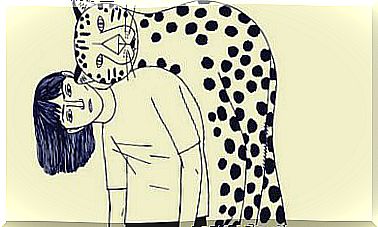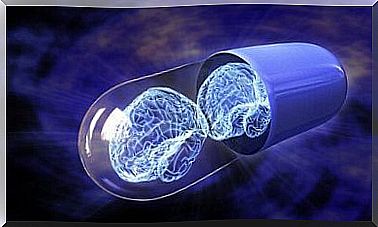Positive Memories Can Help Fight Depression

Remembering pleasant moments in our life promotes our well-being. However, the role of positive memories could be far more powerful than we imagine. In addition to promoting the regulation of emotions, these memories have a positive effect on depression due to stress.
A group of scientists carried out an experiment on this subject with laboratory mice. It was then reported that the artificial reactivation of stored memories during a positive experience can suppress the effects of depression due to stress. Let’s dig deeper .
Artificially induced positive memories
The work that demonstrated the relationship between positive memories and depression, published in the journal Nature , was carried out by scientists from the RIKEN-MIT Center for Neural Circuit Genetics, in collaboration with the RIKEN Brain Science Institute in Japan and the Massachusetts Institute. of Technology (MIT).
The research was carried out in the laboratory of Susumu Tonegawa, director of the RIKEN Brain Science Institute Susumu Tonegawa and professor at MIT, who in 1987 received a Nobel Prize for the discovery of antibody diversity. The study addressed the following question: Can a positive memory overwhelm a negative memory?

To answer the question, genetic engineering was used. This technique was used to create mice in which the memory cells of a convolution of the brain, called the dentate gyrus, can be identified along with the creation of memories and reactivated later thanks to an optical fiber emitting blue light implanted in the same place. The research team was then able to activate the memory cells created during the previous experiments.
To test the system, male mice were exposed to a positive experience (exposure of a female mouse) and a memory of that experience was then created. Then, the mice were exposed to a stressful experience that put them in a state similar to depression. In addition, while the mice were depressed, lights were used to stimulate the dentate gyrus of some of them and thus reactivate the cells of the positive experience.
Storing positive memories is fundamental
Surprisingly, this experiment gave rise to a significant recovery in the moral state of the depressed mice which were subjected to this technique. In addition, brain circuit mapping of this effect revealed two other brain areas that cooperate with the dentate gyrus for the activation of positive memories: the nucleus accumbens and the basolateral amygdala.
On the other hand, the researchers carried out chronic light therapy to the dentate gyrus for more than 5 days. This allowed them to know if this type of recovery from depression was able to induce persistent changes in brain circuits that received no light stimulation. They discovered that the light guaranteed the sustained reactivation of positive memories.
Mice that received this therapy were resistant to the negative effects of stress-induced depression. This means that storing positive experiences in memory can be used to suppress or override the negative effects of behavioral stress. This presupposes a new way of conceptualizing the control of the moral state.

Although little is known about the interplay between positive and negative experiences and their corresponding memories, these findings open the door to new approaches to the therapy of mood disorders.
The authors say it’s too early to say that positive memories can usually overwhelm the effects of stress-induced depression. However, it is a possibility for research and for the development of treatments aimed at combating depression.










